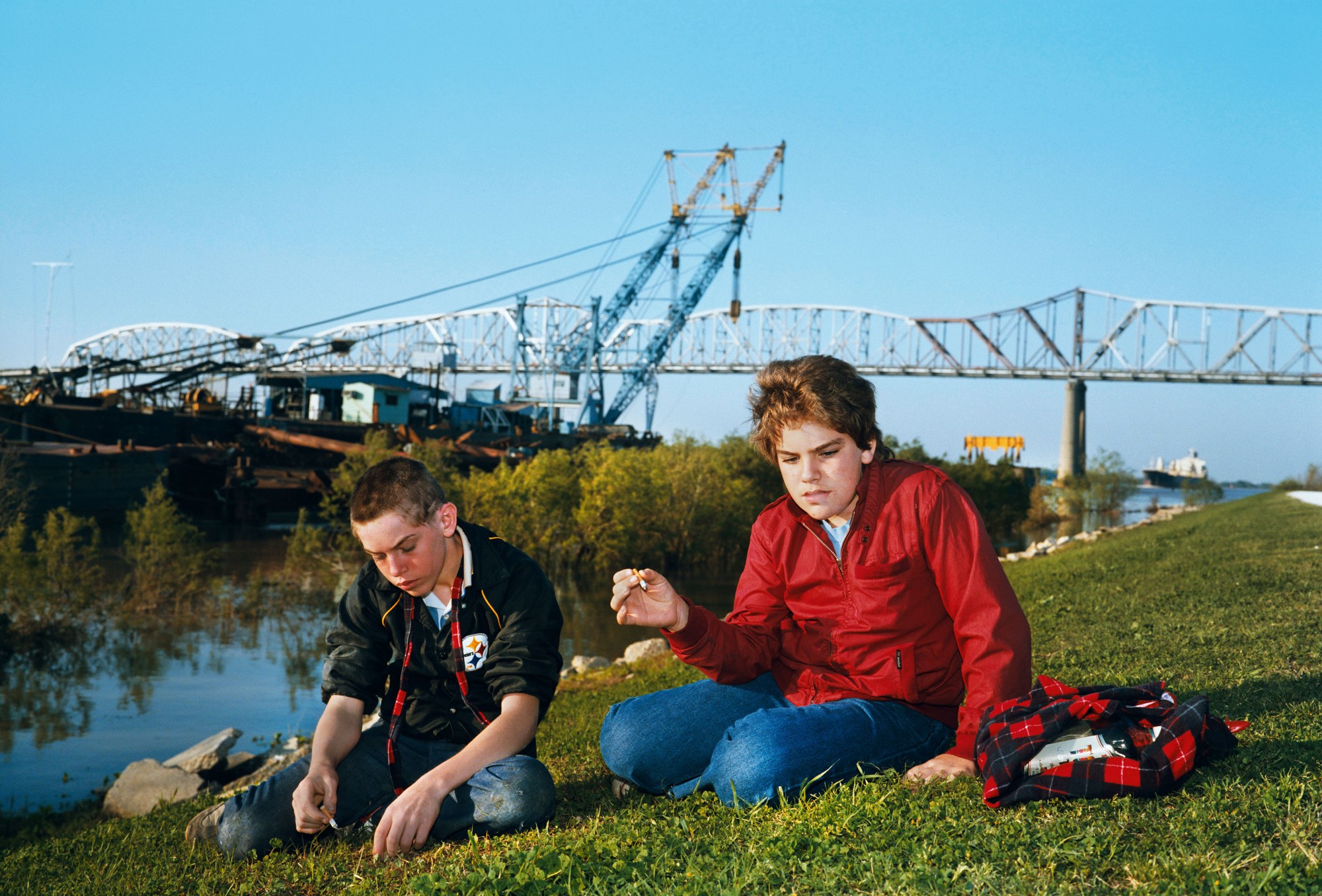Half a century ago, Mitch Epstein left his small New England hometown and landed on the Bowery when it was still New York’s version of Skid Row to study at The Cooper Union. “I started class in September of 1972, and it was just a mind fuck — a completely destabilising, disorienting, and yet absolutely thrilling moment because everything was called into question,” he says. “The city was my campus.”
At Cooper, Mitch studied with celebrated street photographer Garry Winogrand, who became a mentor, providing insight and guidance during those vital, formative years. “Winogrand brought to light how it was critical to unlearn a lot of things that were clogging up my mind,” Mitch says. “His teachings helped me to transcend my preconceptions and be open to how photography functions as a language; not to try so hard and forget about the fact I was making art — just go out and make pictures in places I was drawn to for different reasons.”

But after a semester of making black-and-white pictures, Mitch realised he was simply treading water, and the pictures weren’t very good. He and a few other students decided to work in colour despite the fact it was largely dismissed as the provenance of amateurs and commercial photographers. “Winogrand didn’t bring that idea into the class, but we went to him with it, and he said, ‘Yeah, why not?'” Mitch tells me. “He was very discreet about his own practice and didn’t really make it known that he photographed in colour at that point. And so, with colour, I started to crack something open, and it set me on a path. Colour had certain psychological and emotive potential.”
Working with Kodachrome film, Mitch found his groove and began taking more risks with his work. He points to a photograph he made of a group of women searching for an errant contact lens that fell on a Madison Avenue sidewalk one day in 1973. Shot over the shoulder of someone wearing a polka dot blouse, Mitch observes, “It was very intuitive. On the street, I had very little control, and things happened very fast. Seeing the word ‘authentic’ written on the back of what looks like the New York Times Sunday Magazine — sometimes I was aware of these details, sometimes not, but they were gifts that punctuated and flushed out these pictures.”

Then 21, Mitch was intuitively drawn to compelling and complex scenes he encountered moving through life, a source of pleasure for photographer and subjects alike. “I didn’t set out with the theme of leisure in my mind,” he says. “I wasn’t thinking this through or working with a concept in a self-conscious way. I was just in this wonderful flow of going from picture to picture and building on that.”
Two decades would pass before Mitch gained the experience and distance needed to capture what he describes as “the lure of infatuations” with a critical eye and distil scenes of leisure and play at once quirky, ebullient, and hopelessly mundane. In 2005, he published the landmark 2005 monograph, Recreation (Steidl), which he now revisits, expands and remasters for a fascinating portrait of America between the 70s and 90s during the final years of analogue life.
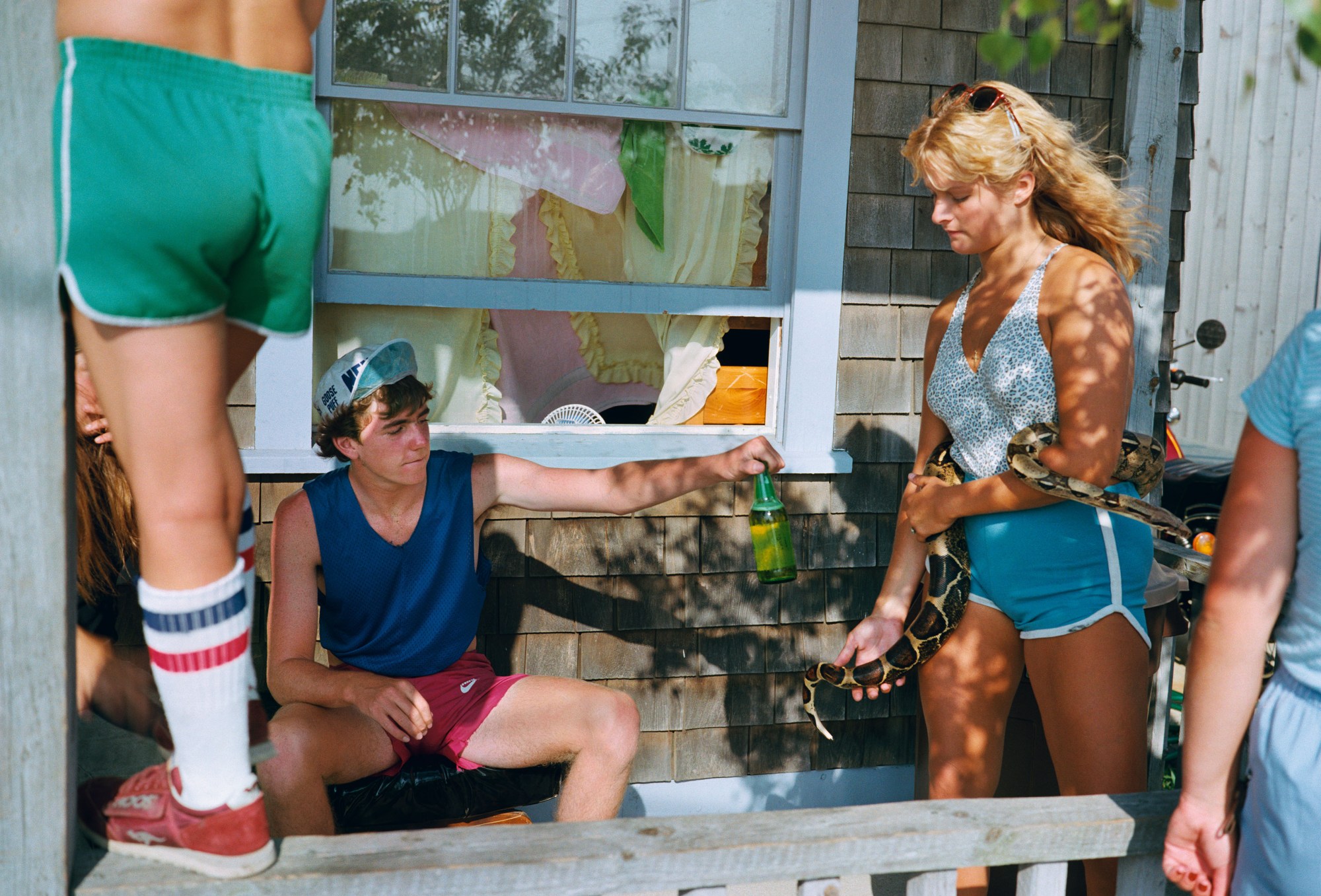
“There was something wonderful about working in a way that was more innocent — not that that times were, but I was,” Mitch says. “I was moving through life trying to separate myself from where I came from and gain enough confidence to just not fail given the uncertainties and doubt of moving to New York and being that age. I wasn’t thinking about a career. I was very idealistic, committed, and energised by making photographs. My early work was ahead of my cognitive ability to fully absorb and understand it.”
It was only by virtue of travelling to Vietnam in the mid-90s and returning to the US that Mitch began to gain perspective on his own journey. “It was at this juncture that I realised the world I photographed in the 1970s and 80s didn’t exist anymore,” he says. “There was a sensitivity and justifiable concern about surveillance, the intrusion of photography, and that in too many cases, borders were violated.”
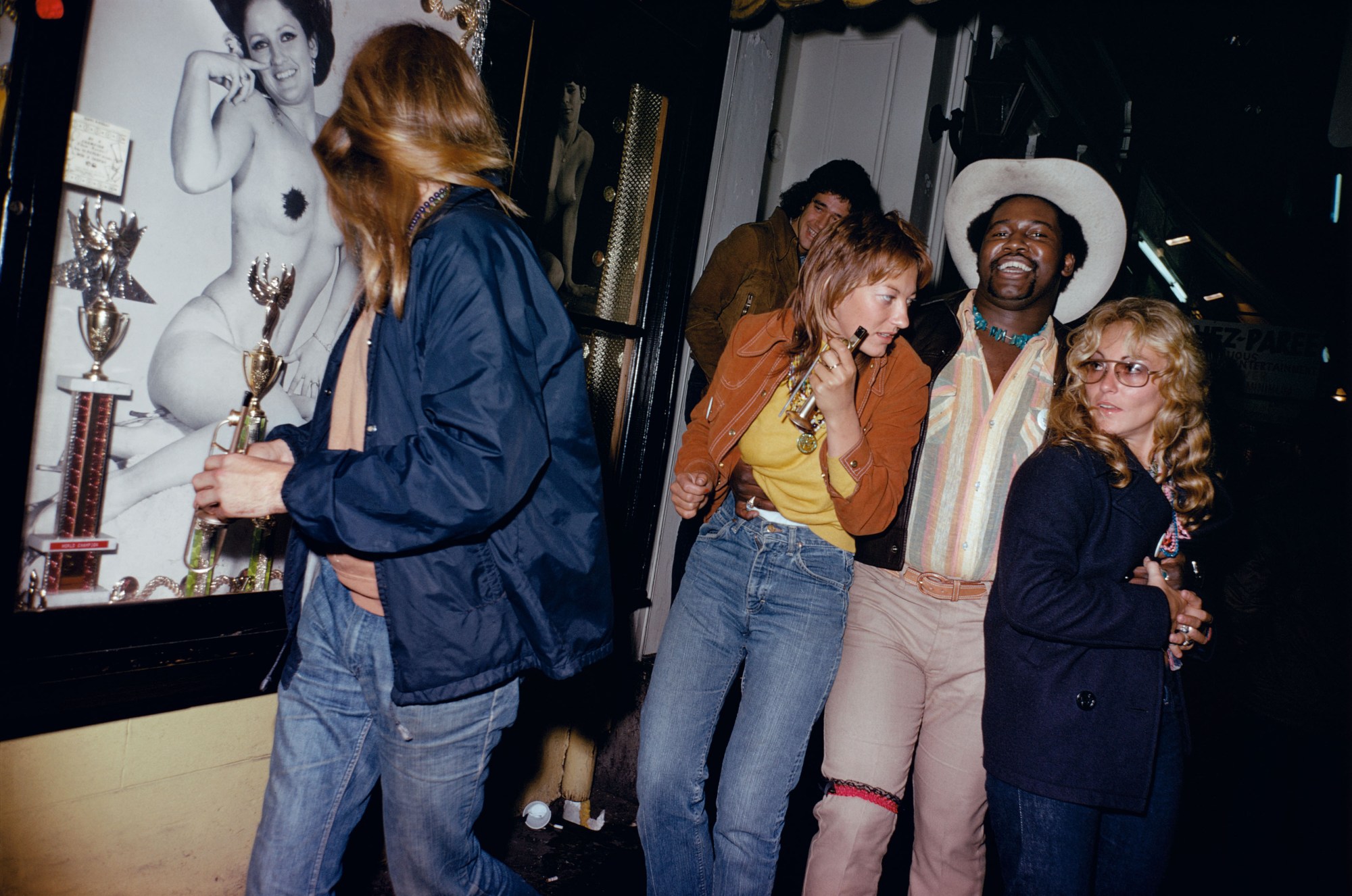
Motivated by these shifts, Mitch looked through his work and recognised, “There was something that was lost, a certain photographic innocence,” where people “were more charmed by the presence of the camera”. He also saw broader changes as a result of rapid gentrification across the country, where things started to look the same. There was something special about the pre-commodification, pre-digital time. Nobody has a phone in any of these pictures. People are present and engaged with where they are and themselves.”
The photographs in Recreation take us back to simpler times before technology transformed the way we move through life. Although analogue life was seemingly less complicated, “The pictures inadvertently speak to a complex cultural landscape,” Mitch says. The nation was rocked by the Watergate scandal and the ensuing resignation of then President Richard Nixon, overwhelmed by economic hardship, stagflation, and the OPEC oil crisis, not to mention the ongoing war in Vietnam. But many Americans simply did what they do best: embrace cognitive dissonance and compartmentalise their lives.
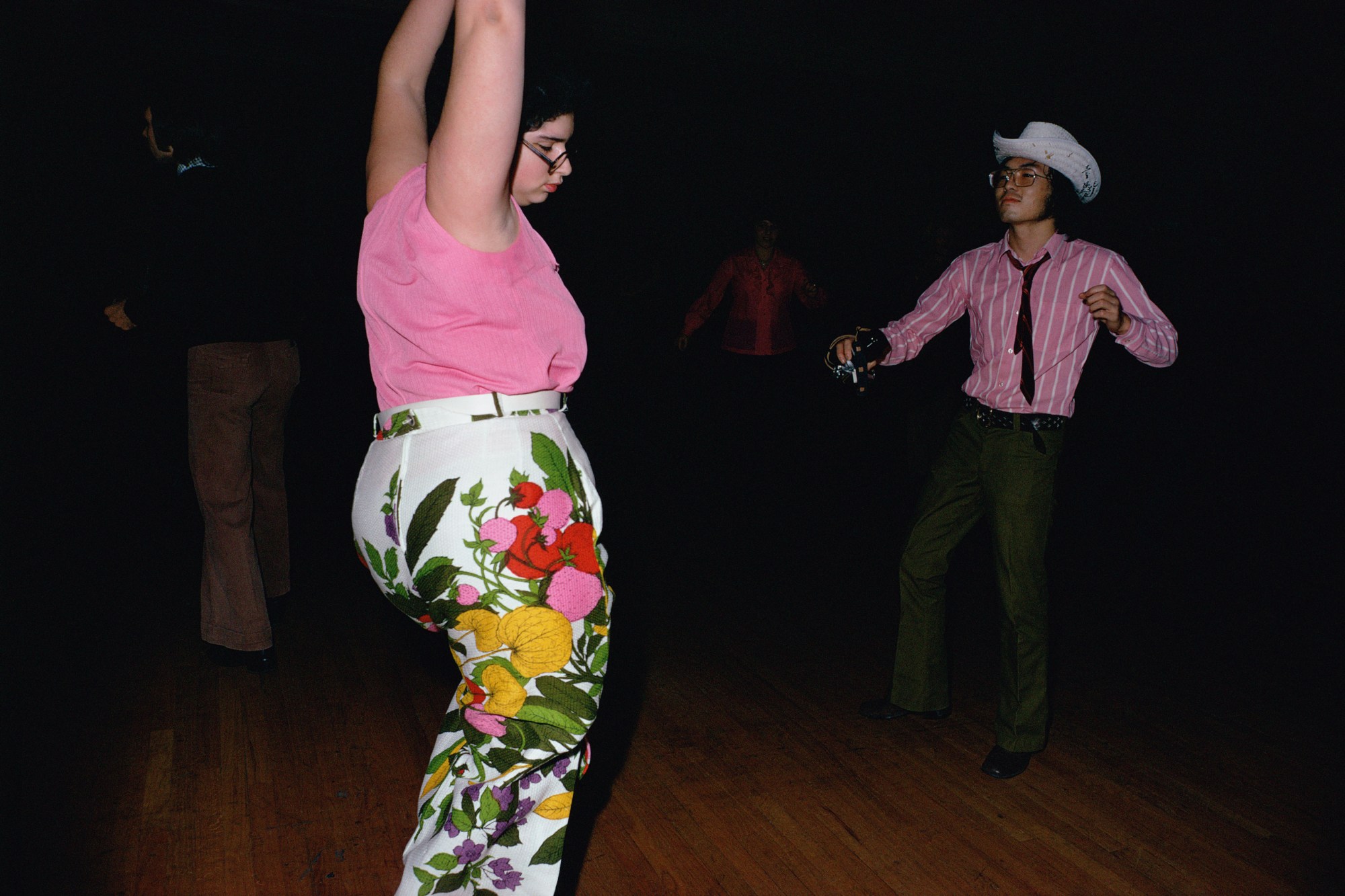
Mitch points to a 1977 photograph of a man sleeping on a sunlounger alongside his emerald green Cadillac parked on an undeveloped stretch of road just south of the World Trade Center. The old West Side Highway still stands, though it is no longer in use, while a chain link fence marks off the landfill that would soon become the site of Battery Park City. The photograph captures the curious juxtapositions of the era, which like the Towers, have been relegated to the worlds of history and myth. “That somebody could get away with taking a siesta on the side of the West Side Highway — it’s a totally different city,” Mitch says. “There’s something moving about that.”
A book signing for ‘Mitch Epstein: Recreation‘ will be held on 21 September 2022 at Dashwood Books in New York.
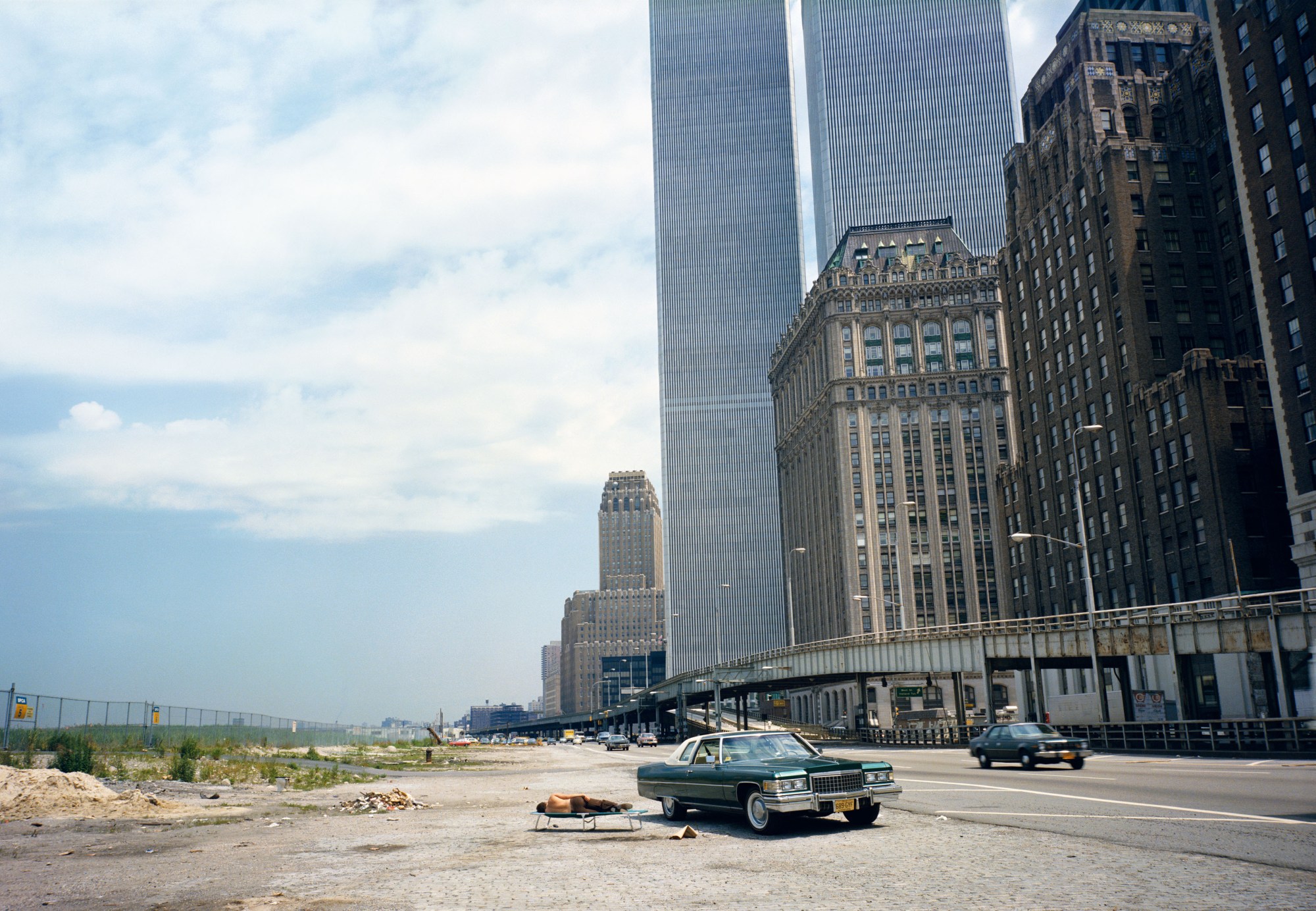
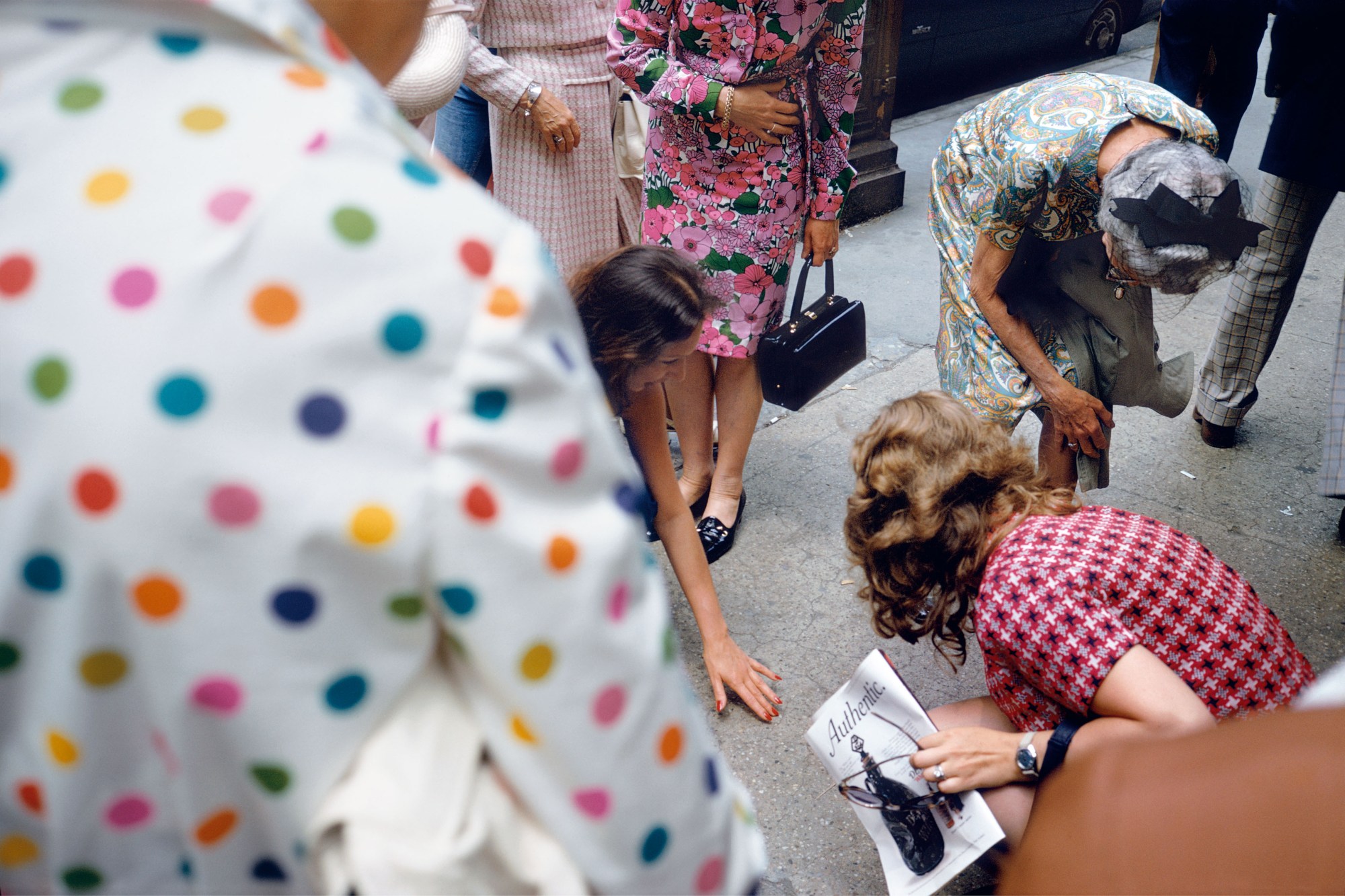
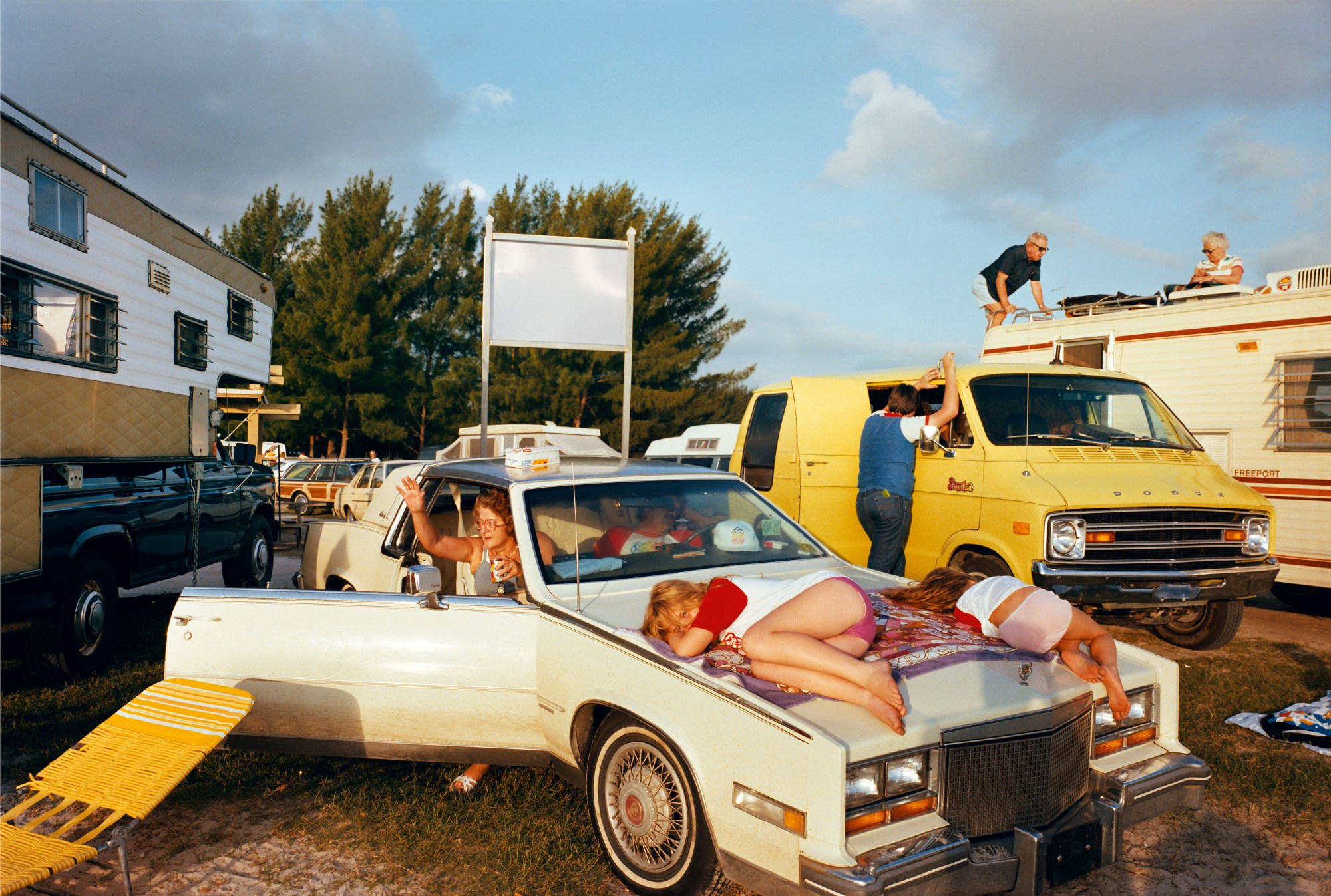
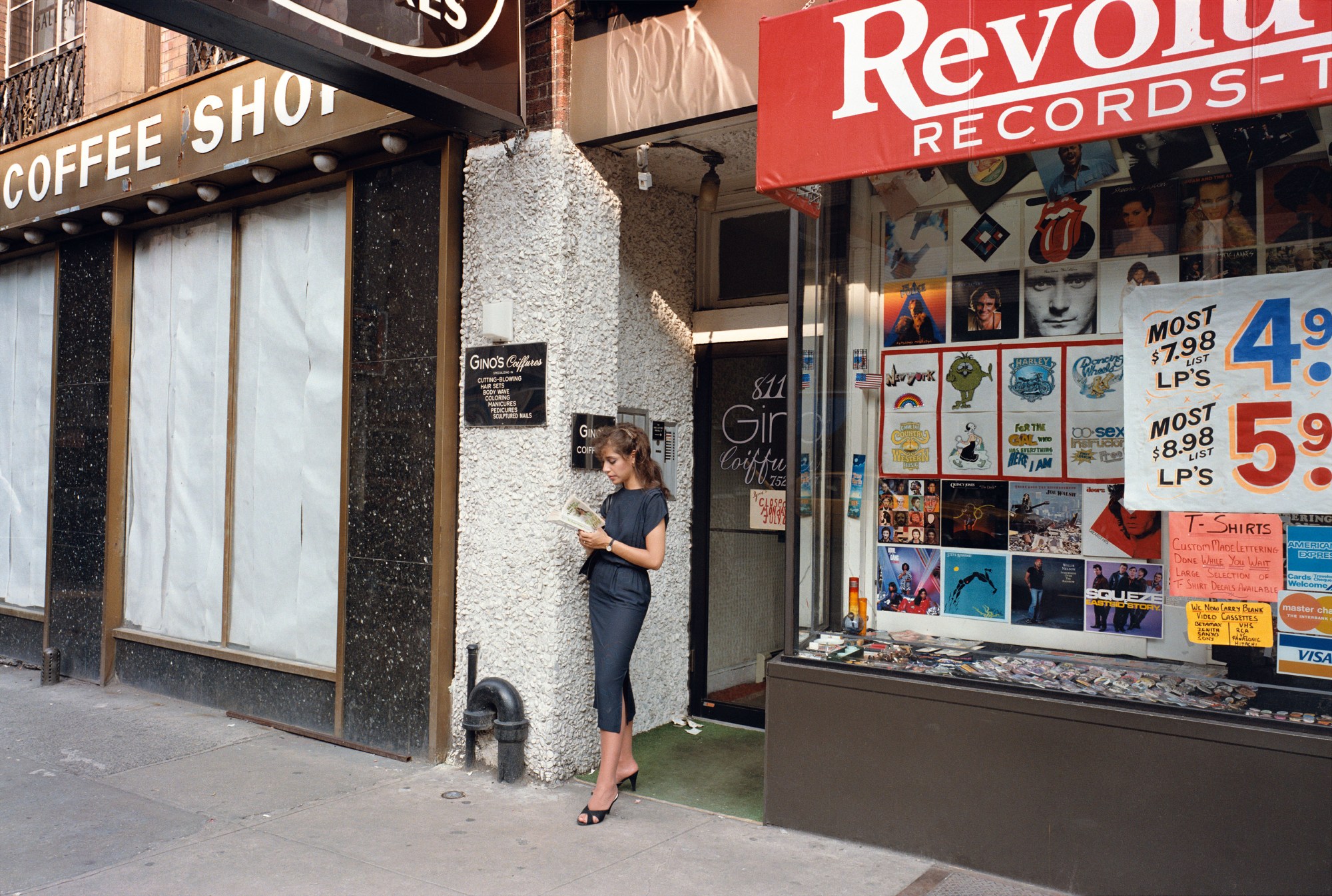
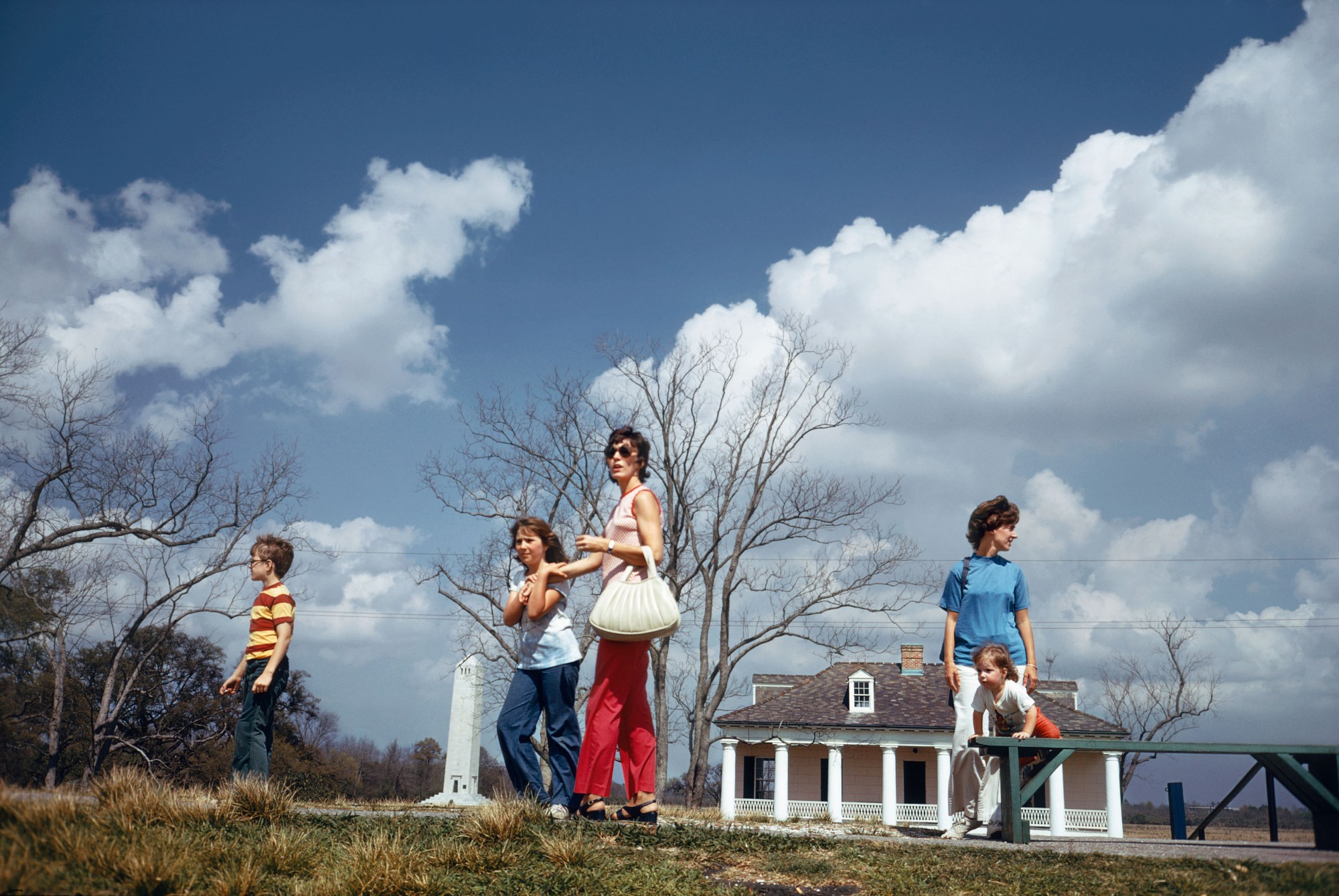
Credits
All images © Mitch Epstein
